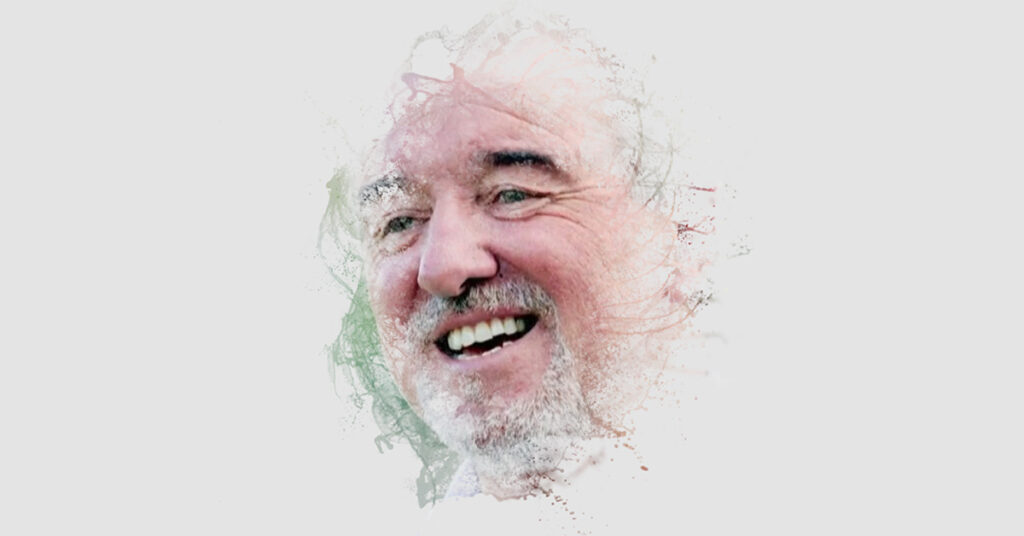Terry Venables: A masterclass in communication, preparation, and flexibility

Terry Venables, the former football manager who led England to the semi-finals of Euro 96, sadly passed away over the weekend. Tributes have poured in for the former Tottenham Hotspur, Crystal Palace, and Barcelona manager, revealing some remarkable lessons from a man who left an indelible mark on the world of football.
Recognising individual differences
During their run to FA Cup glory in 1991, Tottenham were away to Portsmouth in the fifth round. On the morning of the game, Venables received word that Paul Gascoigne, one of Tottenham’s star players, had been up most of the night playing squash.
Venables asked who Gascoigne had been playing with, and when the team to play Portsmouth was announced, Paul Walsh, Gascoigne’s late-night squash partner, was omitted, but Gascoigne wasn’t.
Martin Samuels, writing for The Times, said, “Gascoigne was hyperactive, exceptional, with energy to burn. He could play squash all night and rise the next morning unaffected. Walsh was normal, he’d be dead on his feet.”
Tottenham went on to win the game 2-1, with Gascoigne scoring twice, highlighting the importance of managers recognising the individual differences between members of a team.
Communication extraordinaire
In a managerial career spanning nearly three decades, El Tel received numerous plaudits for his excellent communication skills and ability to connect with players.
But his interpersonal qualities are, perhaps, best epitomised by the story of when Garth Crooks, the former Stoke City and Tottenham forward turned football pundit, was given his England Under-21 debut against Bulgaria.
Crooks says he “had the worst training session imaginable” in the build-up to the game and was convinced he’d played himself out of the starting line-up.
Whilst picking up the various balls he had scattered over the training ground due to his poor finishing, Crooks says Venables slowly took one from him and quietly said, “Calm down, I know what you can do. You are playing tonight, so just relax.” Venables then turned around, threw the ball he’d taken onto the pitch and the training session continued as if nothing had happened.
Crooks was flabbergasted, not only by the faith Venables had placed in him but that he recognised the pain he was going through and attempted to stop it without alerting Crooks’ teammates.
Feeling determined to repay the faith his manager had shown in him, Crooks went on to score a hattrick in a 5-0 victory.
Never fail to prepare
Speaking on Good Morning Britain, former England goalkeeper David Seaman was another to praise Venables’ man management, describing how during Euro 96, he asked Seaman to take Paul Gascoigne fishing because he was really winding Venables up.
The Arsenal legend also discussed how during the build-up to the tournament, as hosts, England didn’t need to qualify, so their manager would have them watch videos of Holland to the confusion of the players.
However, Venables explained how Holland, who were pre-tournament favourites, had “set the bar really high” and said they would play them at some point during the tournament. Clearly a proponent of the famous Benjamin Franklin quote “By failing to prepare, you are preparing to fail,” England ended up playing Holland during the group stage and went on to win 4-1.
Tactically agile
The ability to be flexible and adapt to new challenges is important for any business leader, and Venables is a shining example of how this approach can breed success.
BBC pundit Gary Lineker, who played under Venables at Barcelona and Tottenham, said he was “The best, most innovative coach that I had the privilege and pleasure of playing for.”
Manchester United legend Gary Neville also described Venables as “The most tactically gifted British coach” that he’d ever seen, high praise considering Neville played under Sir Alex Ferguson, who is widely considered the best football manager of all time.
When talking about Venables’ managerial style to Sky Sports, the football pundit, who is a successful entrepreneur in his own right, said Venables “understood how to build a team in different shapes, different organisations, different structures”, saying he was “well ahead of his time”.
In 1985, Venables led Barcelona to their first La Liga title in 11 years and their second since 1960, whilst he took them to the European Cup Final in 1986, where they lost to Steaua Bucharest.
How not to lead
Whilst his career undoubtedly provides many valuable lessons for how to lead, Venables’ various ventures into controversy provide value in what not to do.
When Venables joined forces with Alan Sugar to buy Tottenham Hotspur in 1991, he reportedly used a fake pub, on a street that didn’t exist, as collateral for his £3m stake. Venables’ chequered history with Sugar also includes a case of libel, won by the latter, and claims from Sugar that he was told to pay Nottingham Forest manager, Brian Clough a bung of £50,000 to speed up the transfer of Teddy Sheringham.
Venables was also banned from being a director for seven years for mismanagement of four companies, including Tottenham and Scribes West, his private members club.

